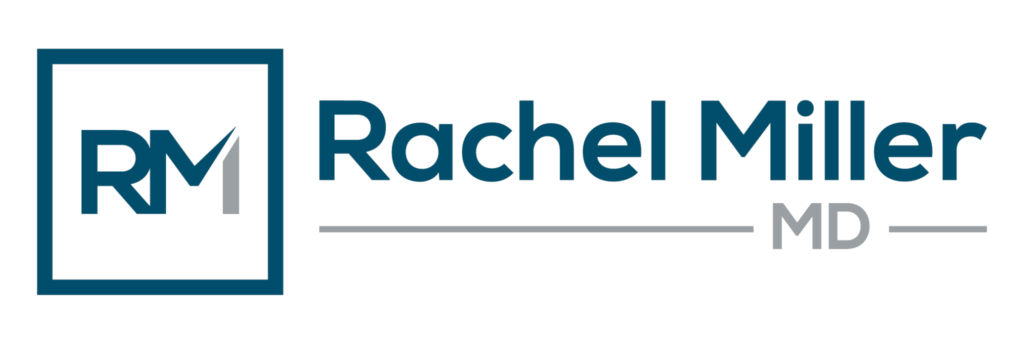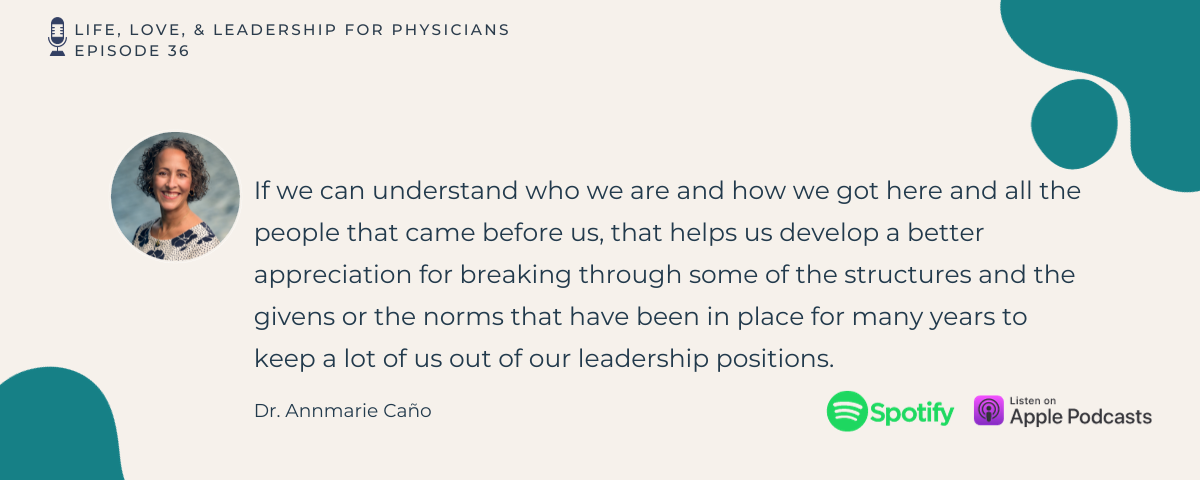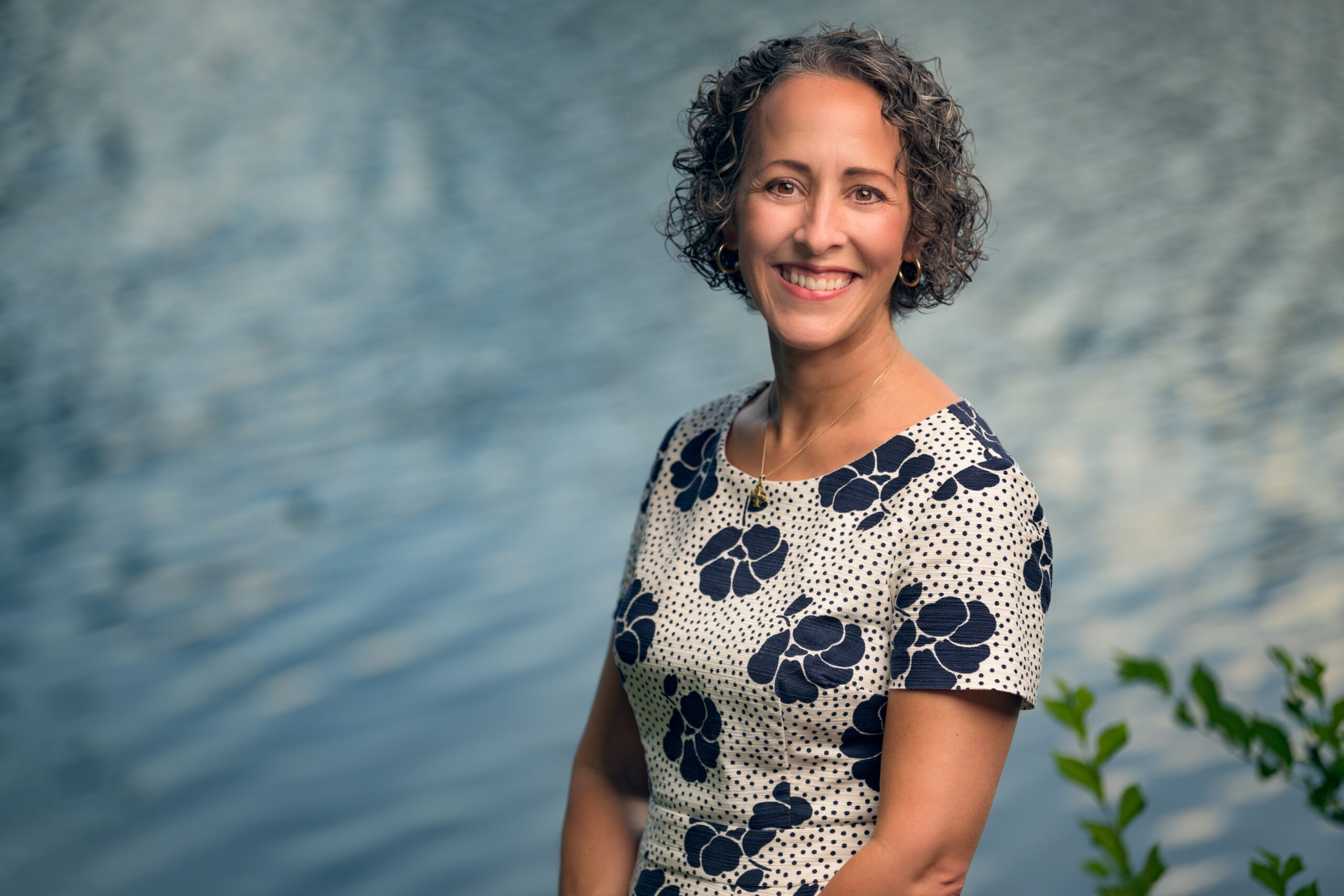Although a hierarchical framework serves specific purposes, it can also oppress individuals from being their authentic selves and leveraging their uniqueness to enhance their organization. So, how can we create an environment that promotes greater inclusivity and empowerment in healthcare?
In episode 37 of the Life, Love, and Leadership for Physicians podcast, I discuss liberatory leadership with Dr. Annmarie Caño. You’ll learn what this leadership style encompasses and gain insight into the pivotal role that leaders play in reshaping these power structures so that you can initiate transformative change within your organization.
Dr. Annmarie is a licensed clinical psychologist and board-certified coach with 25 years of experience as a college professor, researcher, and academic leader. She embraces a compassionate and liberatory stance in which she listens deeply and with curiosity to support the growth of others. Dr. Annmarie Caño firmly believes that effective and fulfilled leaders put in the work to know themselves, including their places in the world. With this knowledge, leaders can engage in courageous action to co-create systems and practices that contribute to the health and well-being of others in their charge.
How can we lead with integrity and authenticity in a complex or political environment?
There’s a chain of command that’s expected to be followed in healthcare institutions. While these systems have their purpose, they create an elitist climate that values certain people over others. Some individuals tend to use this hierarchy to wield their power against others in unhealthy ways that oppose their institution’s mission. The political piece of this is that people in these hierarchical organizations expect leaders to be distant or standoffish in order to be strong leaders.
“So for me, to be political means something different than what it might mean to other people in terms of, I gotta keep my cards close to my vest, I can’t share what I’m really thinking. That’s not political to me; that’s secrecy, that’s lack of transparency. For me, to be political means to be who I am, to show up as who I am so that other people can also show up as their authentic selves and be their best selves at work. That’s what I want. But I will tell you that in hierarchical organizations that are not used to that, there’s an adjustment period.”
We have to lead with what is authentically ours. If we show up in a way that’s not who we are, then we will be fighting ourselves, and there will be a lot of internal turmoil within us.
What’s the difference between working as a psychologist and as a coach?
Psychologists and coaches share listening skills and ask open-ended questions to understand their clients, but they differ significantly. Psychologists primarily address issues related to mental health, such as depression and anxiety. They aim to help clients manage past experiences, present challenges, and future worries and provide a course of treatment.
In contrast, coaching is centered on personal and professional development, assuming clients are generally well enough to tackle challenging questions about their goals. Coaches empower clients to take ownership of their journey, offering support in setting and achieving objectives. It’s a less prescriptive and more client-driven approach.
How can we lead in a way that doesn’t reinforce hierarchy, power structures, and oppression?
Dr. Annmarie Caño believes the answer lies in leading from a place of liberation. This approach doesn’t center around saving individuals but focuses on liberating the structures and systems from oppressive practices and policies deeply ingrained within them. To do this, leaders need to engage in introspection and develop their critical consciousness to understand who they are as individuals and within their family unit, in their community, society, and through history.
“If we can understand who we are and how we got here and all the people that came before us, that helps us develop a better appreciation for breaking through some of the structures and the givens or the norms that have been in place for many years to keep a lot of us out of our leadership positions.”
Liberatory leadership challenges leaders to trust others who may be different from them or have experienced more marginalization and exclusion. It also challenges leaders to take courageous action, advocate for justice, and make changes for the good, even when it’s unpopular. When we practice liberatory leadership, we free up the system to allow people to be their best selves.
It’s vital that we as leaders learn to embrace everyone’s uniqueness. Listen and learn more about liberatory leadership in episode 37 of the Life, Love, and Leadership for Physicians podcast.



